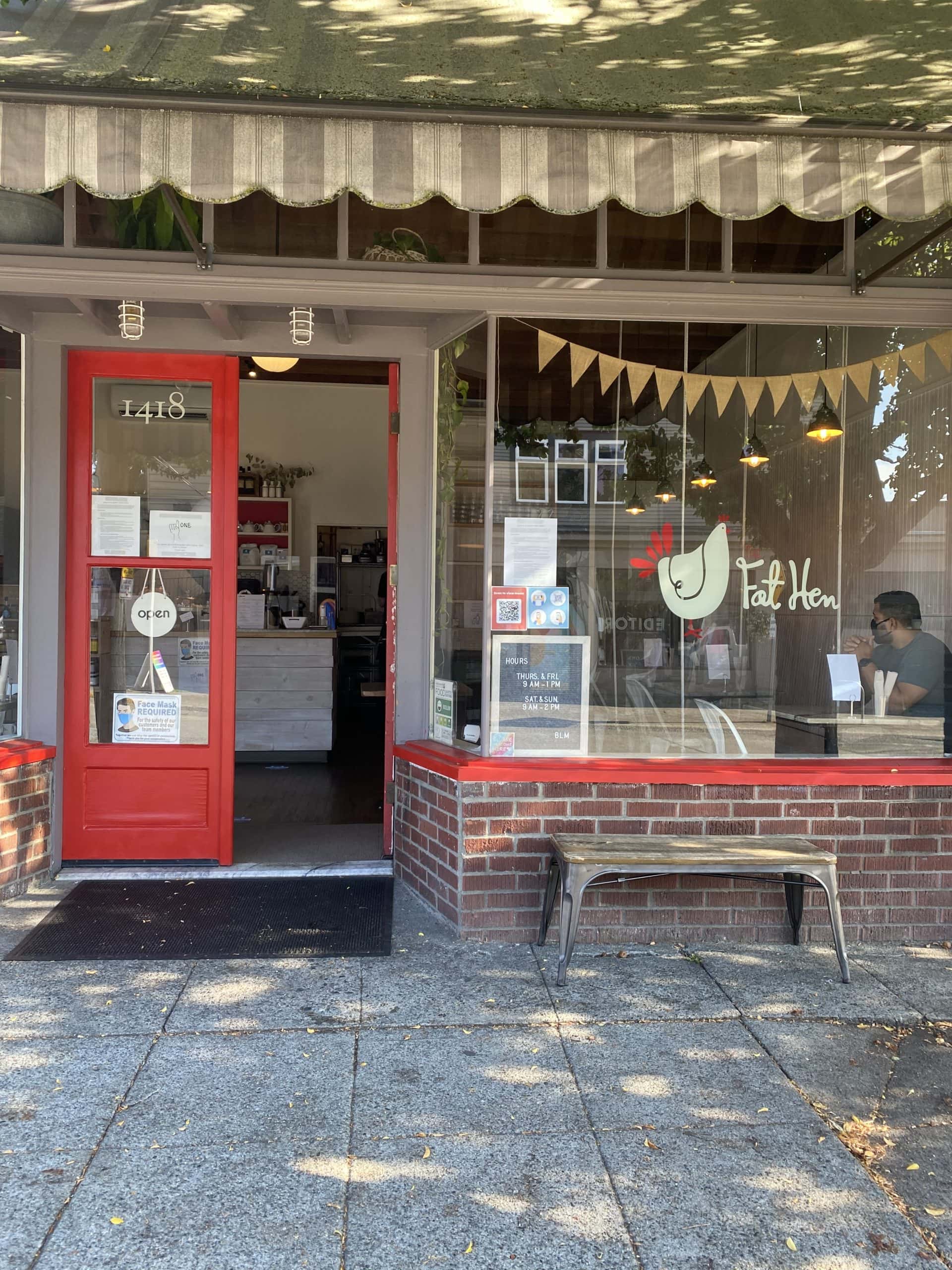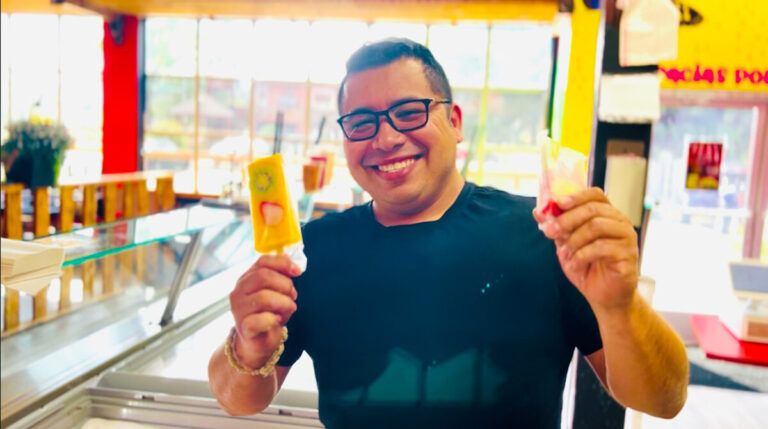Upon entering The Fat Hen restaurant in the Ballard neighborhood of Seattle, several adjectives come to mind: Quaint. Cozy. Cute. Charming. Friendly. Inviting. But perhaps the best word to describe this favorite neighborhood establishment is “communal.”
A sense of community pervades everything The Fat Hen does. The menu, featuring hearty brunch dishes like eggs Benedict, house-made ricotta toast, and skillet-baked eggs, is designed to be enjoyed on the premises, fresh from the kitchen. The restaurant itself—a small, rectangular room featuring unpretentious stools and tables—seats roughly 25 people at a time, making it ideal for people-watching, intimate conversations, or striking up a conversation with the strangers sitting next to you. While the restaurant has become famous city-wide for its delicious Saturday and Sunday brunch, it also boasts a healthy stream of regulars, some of whom patronize the restaurant every day. The owners, husband-and-wife team Sammie and Cody Jeffs, want to keep it that way.
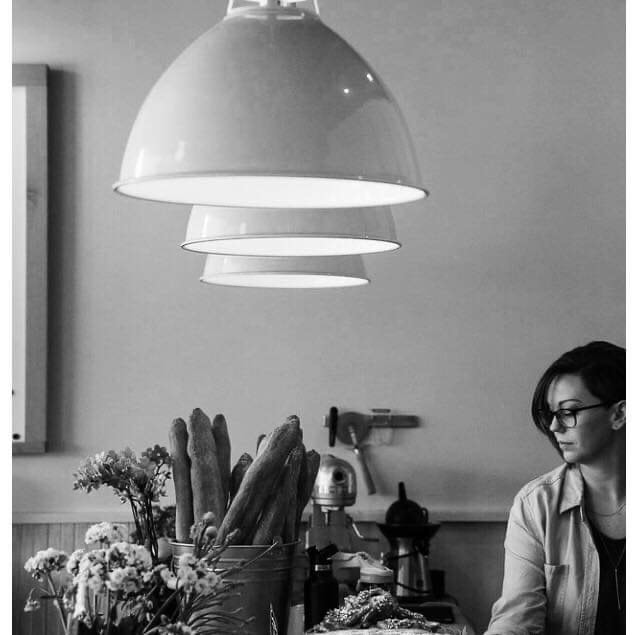
Sammie Jeffs at work at The Fat Hen.
Sammie and Cody took over The Fat Hen in 2016. The couple had recently moved to Seattle from Las Vegas where Cody had worked for famed chef and restaurateur José Andrés and Sammie launched a career in the restaurant industry as well. They decided to move to Seattle after a few visits convinced them it was a good place to settle down and to potentially open their own restaurant. For years the Jeffs had harbored fantasies of opening a tapas-style restaurant that pulled in influences from other cuisines and featured a gin and tonic bar—an idea they got after visiting Spain. “The Gintoneria is what we were calling it,” Cody says.
While they laid their plans for the Gintoneria, Cody started working at Lark, an upscale restaurant in downtown Seattle, and and Sammie started managing multiple restaurants for noted Seattle chef Rachel Yang. Meanwhile, Cody began meeting with possible investors and hosting pop-up events to showcase their restaurant concept. Despite the interest they received in the idea, they had trouble getting started. “Finding space is very hard,” Cody says. “Negotiating to get spaces is hard. Getting investment is a challenge.”
Eventually their networking and community connections paid off in a way they didn’t anticipate. They learned the owners of The Fat Hen were looking to sell and saw an opportunity to work in their chosen field without giving up their lives. “We saw a way to have a sense of community but also have a work-life balance,” Cody say. “It’s more of what we needed to switch because we were just nighttime restaurant people and now it’s like, wow, we get to come in, we cook brunch, we have our nights off, we can maintain a healthy lifestyle and still do what we love and still provide food for our community.”
“It was almost like, okay, this obviously is where we’re supposed to be,” Sammie adds. “It was the right opportunity at the right time.”
The Jeffs saw what The Fat Hen provided its customers and didn’t want to shake things up too much. They kept the name, most of the menu, and the overall look and feel of the space. But since taking ownership, they’ve added and changed a few things to the menu. “We’re always looking to just put that little tweak on something and make it a little better,” Cody says. “And then we’re really trying to push to get everything in locally and local and organic products and stuff like that. We’re always pushing to get a better product in or to improve a recipe.”
The community has responded enthusiastically. For a typical weekend brunch, customers will line up outside and the five-person staff will turn the tables ten to twelve times over the course of a shift. Even though COVID-19 forced the Jeffs to dramatically scale back the business, people are still showing up to support them. “There are some people that used to come to The Fat Hen every day, and there are some regulars that miss the skillets and things like that,” Cody says. “But what’s nice is they know that’s coming back and they tell us we’ll be back when it’s here or they are going to enjoy our limited menu for the time being. So, it’s nice when there is a sense of normalcy and we’re like, okay, people will be back and they’ll be really happy to get these things.”
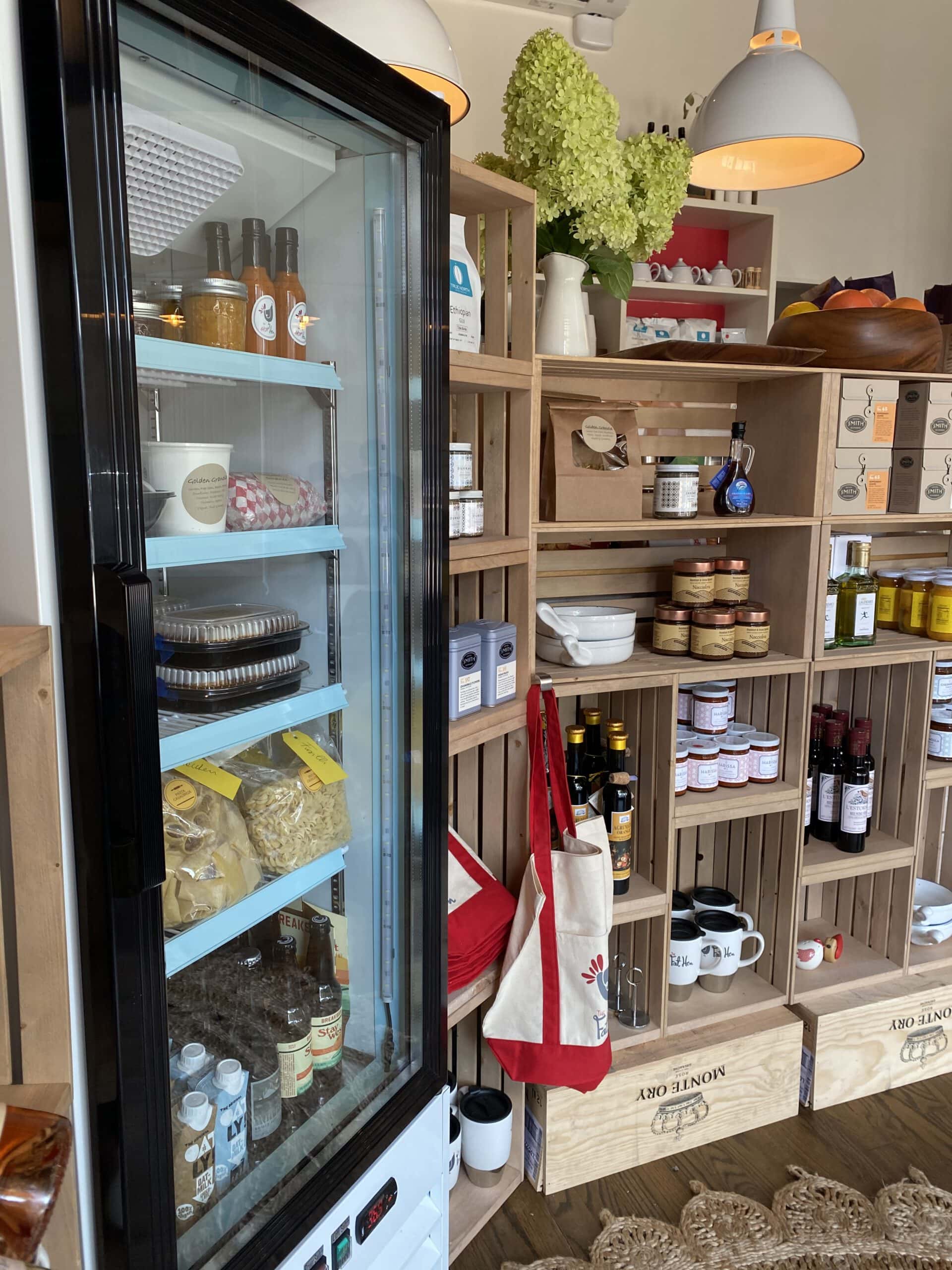
A pop-up market featuring locally sourced and European ingredients featured in The Fat Hen’s favorite recipes.
For now, The Fat Hen has had to adapt to keep customers and staff safe due to the pandemic. When the pandemic first began, the Jeffs furloughed their entire staff. (They have since hired some of them back under Washington’s work-share program that allows businesses to keep employees on the payroll part-time while letting them receive unemployment to make up the difference in wages.) And while many other restaurants pivoted to take-out or delivery, Cody and Sammie knew that most of their menu items wouldn’t travel well.
“We have such a strong following that people would call and be like, ‘Can I order eggs Benedict?’ And you’re having to explain to them, ‘I’m so sorry, but we’re not going to be serving that until we’re able to open for seating,’” Sammie says. “It’s not something that carries well, and you have to be really mindful of what you’re putting out there in this to-go program because it can be harmful in the sense where somebody gets an item that isn’t up to our standard. We were very methodical and thoughtful about what makes sense.”
For a restaurant designed for in-house, communal eating, this has required some creativity. Prior to the pandemic, The Fat Hen did not offer any to-go options, but they’ve been willing to pivot to continue serving customers. As of now, the restaurant is offering a limited menu featuring some new items designed to work well for takeout or delivery. The most popular item is a breakfast sandwich featuring fried egg, avocado, arugula, and an herbed aioli on fresh ciabatta. They’ve also started offering grab-and-go options like a farro salad, soup of the day, and a DIY egg-bake kit so people can make their own egg dishes at home.
They’ve also set up a small market on the premises so customers can purchase their favorite high-quality locally sourced or imported ingredients that they’re accustomed to tasting in The Fat Hen’s recipes. “Part of the struggle is sourcing products and managing inventory,” Cody says. “So we thought, why don’t we bring in a lot of stuff that we can sell but we can also use these cool products for specials and then also offer our entire menu as a pantry?”
“It’s still in its infancy stage, but that’s the idea behind it,” Sammie adds. “High-end local products and high-end European products—that’s a hard thing to get your hands on at your local typical grocer. And it’s a way for us to also create relationships with these people, these local makers, these local farmers. And it’s the idea of think globally but act locally. The more that we can reach out to our community and those people doing great things in our community and bring it in here and share it with the other portion of the community—it’s going to be great.”
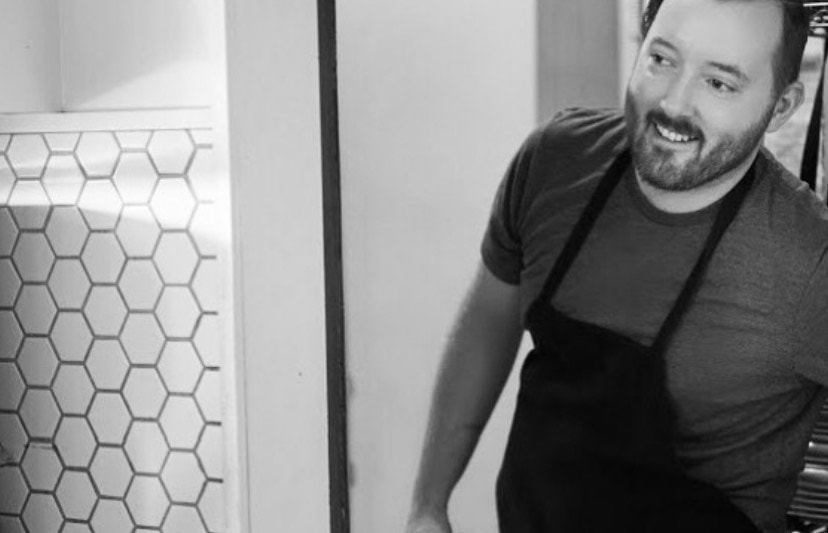
Cody Jeffs, head chef and co-owner of The Fat Hen
While the Jeffs are looking forward to getting back to business as usual, they’re content to take their time. “I don’t necessarily feel comfortable seating anybody in here until we’re at least at 75% capacity,” Sammie says. “Number one, it doesn’t make sense for us. Such a small space at 25% capacity–how many people can we have in here? Two?”
Sammie and Cody have also found a sense of community in their work with Gravity Payments. Soon after the pandemic hit, Gravity reached out to The Fat Hen about setting up a delivery program. As longtime processing clients of Gravity, Sammie and Cody were excited by the offer, especially since they had never seriously considered a delivery option before.
“We had been looking at all these different platforms to offer delivery because we knew that could possibly be something that would benefit our bottom line,” Sammie says. “But the more I looked at it, the more hesitant I was because of how much those apps take. Fifteen to thirty percent is huge in a restaurant.”
Gravity, which serves roughly 5,000 restaurant clients across the country, was aware of the bad deal many restaurants get by relying on third-party apps to deliver their food. Not only do the apps charge exorbitant fees, but they also control the entire delivery experience, which means the restaurant has little control over their customers’ experience once an order leaves their kitchens. Although Gravity was not in the business of food delivery, a small team of employees volunteered to try and identify an alternative. They soon found a low-cost app called QuestTag that allows customers to order directly from restaurants, thus allowing the business to maintain control and retain the vast majority of its revenue. Gravity employee Austin Kamin offered to set The Fat Hen up with the program and even volunteered to do all of their deliveries himself while they tested it out. For the past couple of months, The Fat Hen has been able to offer delivery for its customers and is now in the process of taking full ownership of the process.
“I’m really grateful that they’ve reached out,” Cody says. “And that’s what we talk about when we talk about being part of the community.”
By Brooke Carey, Lead Storyteller
To learn more about how Gravity works with small businesses or to schedule a time with one of our industry specialists, visit our merchant services page.
Photos courtesy of The Fat Hen

